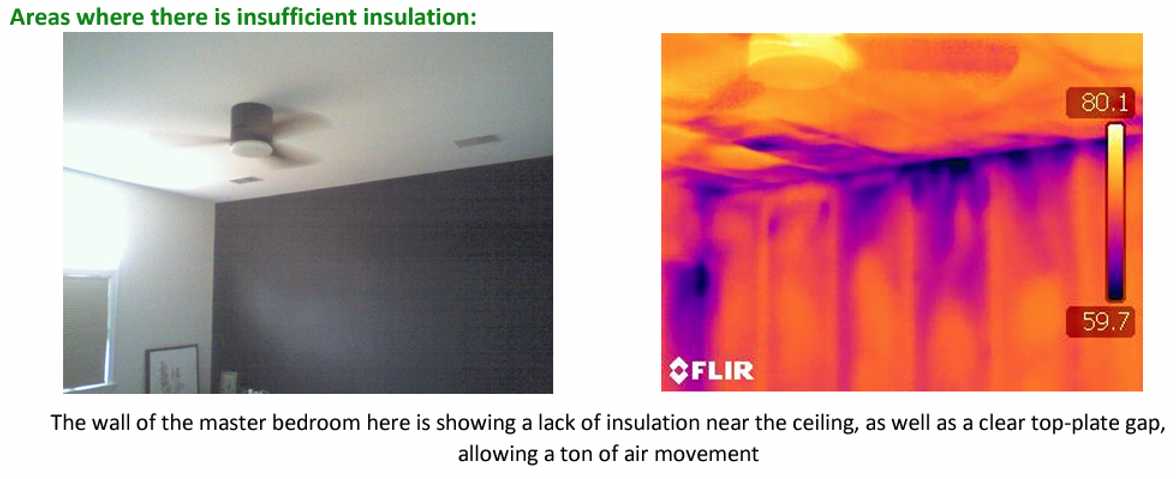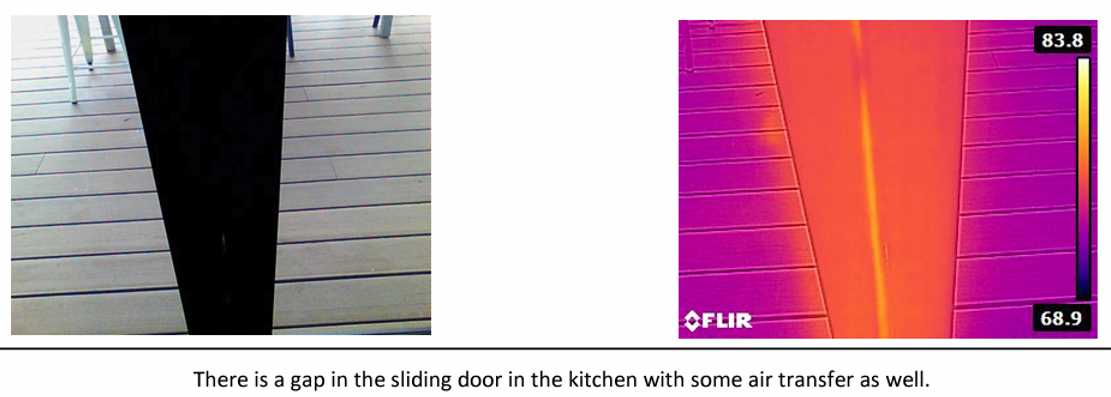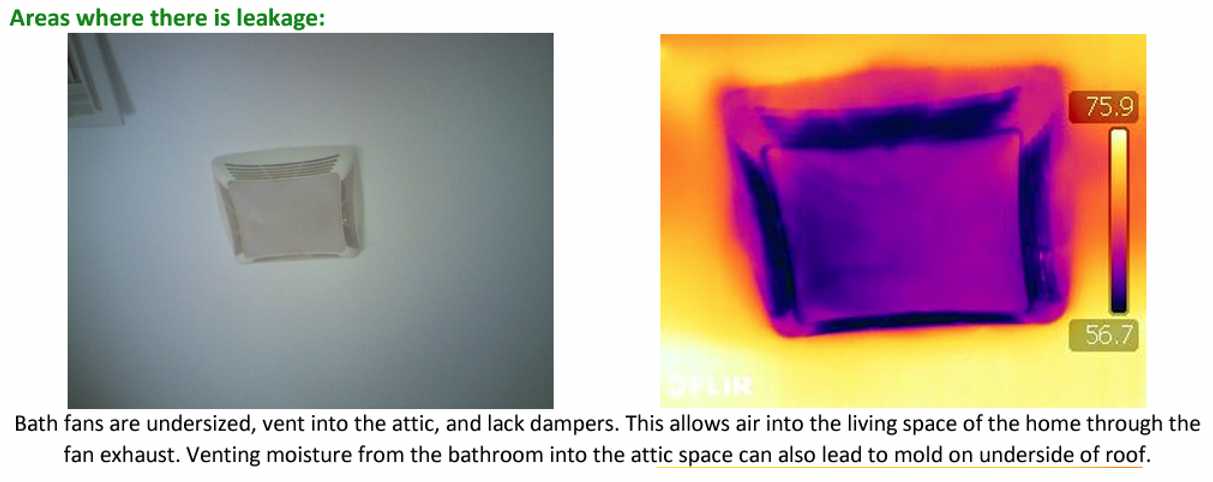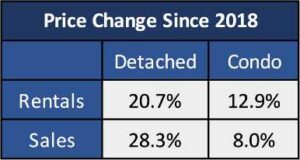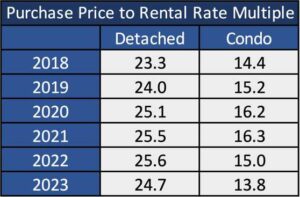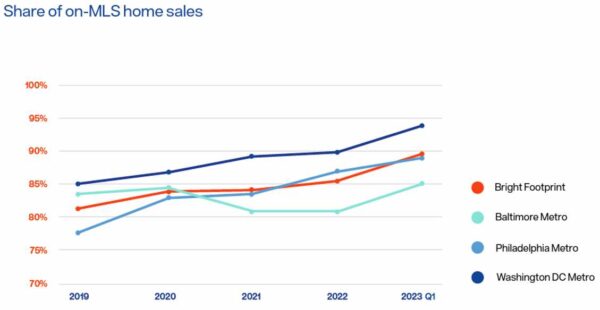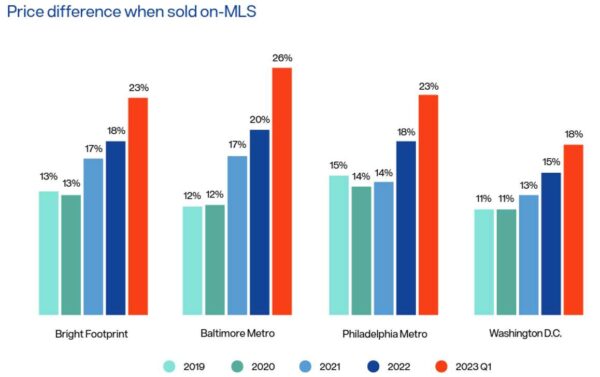This regularly scheduled sponsored Q&A column is written by Eli Tucker, Arlington-based Realtor and Arlington resident. Please submit your questions to him via email for response in future columns. Video summaries of some articles can be found on YouTube on the Eli Residential channel. Enjoy!
Question: What are your thoughts on the recent class action lawsuit against the National Association of Realtors?
Answer: You’ve probably read headline news over the past week about the Kansas City jury that found the National Association of Realtors and two of the nation’s largest brokerages, HomeServices of America and Keller Williams, guilty of colluding to keep Realtor commissions high via the use of the “clear cooperation” rule, which required there to be an offer of compensation to buyer agents/brokers for properties listed in an MLS.
The lawsuit awarded plaintiffs in Missouri, Kansas, and Illinois damages of $1.78B, which gets automatically “trebled” (tripled) by the court to $5.36B. Numbers that the defendants don’t come remotely close to having in combined cash and/or assets.
If you missed it, here’s a Housing Wire article with a good summary of the lawsuit, without subjective commentary. The lawsuit and others like it (there was a similar lawsuit settled a month ago and another copycat lawsuit recently filed) are a huge deal for the residential real estate industry and consumers.
I’m not going to waste your time making predictions about the legal process this and similar lawsuits will follow, you can google the lawsuit for plenty of opinions. It’s a massively complex issue from a legal and practical standpoint and nobody can honestly say they know where this will lead in the next six months or six years. It could end up at the Supreme Court years from now or it could send shockwaves through the residential real estate industry by next year.
I’m going to share my thoughts on a few of the ideas the lawsuit was built on, some of the more popular opinions I’ve read in the news, and things I find particularly difficult to solve in all of this.
There are reasonable, strong arguments to be made on both sides of most of the issues revolving around this topic. Most of what you’ll read/hear in the media is going to focus on opinions and ideas that are anti-Realtor “Cartel” because it appeals to the masses and generates traffic and eyeballs. I’ll touch on both sides of the argument in some cases, in others I’ll offer my perspective from inside the industry.
This is Mostly About Seller’s Paying Buyer Agent Commissions
Most MLS’s and Associations require(d) there to be an offer of compensation to the buyer agent/broker on a property listed for sale in the MLS; you could not sell something on-market with zero buyer-agent compensation. The lawsuit claims that ~500,000 sellers in MO, IL, and KS included in the class action lawsuit would not have offered/paid this compensation had it not been required and the $1.78B is the amount they “overpaid” in commissions.
The way most market transactions are structured (and have been for 2-3 decades) is that the seller agrees, prior to selling, to pay their broker X% and that amount is usually split evenly between the seller’s broker and the buyer’s broker, which is explicitly stated in the Listing Agreement. For reference, here’s the study I did this year on 2022 buyer-agent commissions in Arlington. There is clearly a “market” price for buy-side commissions.
While required, there is nothing that prevented offers of compensation of $1 or something well below the market, but people (consumers, agents, brokers) rarely chose that option. The plaintiffs in the case were able to make a strong enough case that sellers were forced to offer compensation at market rates and did not know they had a choice.
What if Sellers Stop Paying Buyer Agent/Broker Commission?
This is where it gets interesting and difficult, practically speaking. I could write a few columns on this topic and may do so over time, but I’ll keep it simple here.
Representation on both sides of the transaction is important. Yes, there are plenty of examples of bad representation and consumers who saw little or even negative value in their representation, but for the most part, studies show that buyers and sellers value having independent, professional representation in real estate transactions.
Sellers paying buyer broker commission makes sense and doesn’t make sense all at the same time.
It makes sense because it’s a cost taken out of proceeds for the sale rather than an out-of-pocket expense, so it’s much easier for a seller to receive less than a buyer to pay more. Anybody who has owed taxes understands the significance of how different paying taxes feels when it’s taken out of your paycheck vs cutting a big check to Uncle Sam.
It doesn’t make sense because of the obvious… why should I pay for your representation?
The problem, and I mean problem for consumers not for Realtors because of lost commission, is that if there’s a fundamental change to commission structure and sellers generally stop paying buy-side commission, the result is that most buyers cannot afford to tack on additional closing costs to their transaction and lenders will not allow it to be rolled into the loan (maybe this changes in the future). Wealthier buyers may be able to afford to hire buyer agents, but this scenario all but guarantees an even more difficult path to home ownership for those who can’t afford it.



